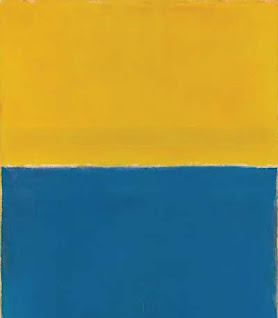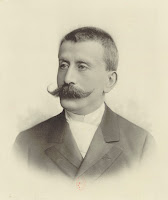 |
| l-r: Susan Greenberg, Todd Mason, Jennifer Johnson Cullinan, Judith Farmer, Kevin Fitz-Gerald, Sara Bach, Sergio Coehlo. |
REVIEW
Los Angeles Wind Sextet, Mason House Concert, Mar Vista
DAVID J BROWN
Taken overall, the programs of the six-concert series that LA composer Todd Mason mounts each year in his own home concert room judiciously mix new music and acknowledged masterworks from the past, but with the balance shifting greatly from concert to concert. In the current season, resurgent after the Covid-stricken silence of 2020-21, the February concert (reviewed here by John Stodder) presented only recent works by living LA-based composers, whilst the upcoming April recital is entirely devoted to three “greats,” Mozart, Brahms, and Mahler.
But this month’s program, by the Los Angeles Wind Sextet (Susan Greenberg, flute; Jennifer Johnson Cullinan, oboe; Sergio Coehlo, clarinet; Sarah Bach, horn; Judith Farmer, bassoon; Kevin Fitz-Gerald, piano) was more of a hybrid, including as it did not only one new piece and a gem by a master (more recent than the three noted above), but also two works by other composers from the past who have more or less fallen into obscurity: the resplendently mustached and monikered Ludwig Wilhelm Andreas Maria Thuille (1861-1907) and Moritz Moszkowski (1854-1925).
 |
| Ludwig Thuille. |
When still a teenager Thuille was hailed in a letter from the even younger Strauss as “you blinded Schumannian!” but, a decade on in Thuille’s composing career, the Sextet evinces a spaciousness, structural resourcefulness, harmonic richness and melodic memorability that instead recall Brahms, right from the opening Allegro moderato’s noble main theme, given out by the horn over pianissimo ostinati on the keyboard.
This perilously exposed launch was flawlessly navigated by Ms. Bach, and as the theme was handed on successively to the clarinet, the flute, and then the full complement of winds, it was clear that this performance was going to have all the commitment and security missing from the tepid account of the Sextet that I had previously come across on YouTube.
After the extensive first movement—a full 12 minutes without any exposition repeat to be observed or omitted—the ensuing and much briefer Larghetto inevitably lost some of the romantic magic that a more distant acoustic would have imparted, but against that all was gain in the emphasized contrast between plangent sonorities from the woodwind and the ardent pianism of Mr. Fitz-Gerald, as they passed back and forth between them Thuille’s eloquent melodies—the principal theme again allotted first to the horn.
Next, instead of a fast scherzo, Thuille surprises with an impish, toe-tapping, head-nodding gavotte, led this time by the clarinet and enclosing an elfin Doppio movimento trio section, to be followed by an ebullient and nimbly varied Vivace finale, which in not outstaying its welcome set the seal on a performance that could not have been a better advocate for this composer—let’s have some more Thuille!
 |
| Mark Rothko's "Untitled (Yellow and Blue)," shown by Todd Mason as he dedicated the performance of his Wind Quintet to the people of Ukraine. |
In marked contrast to what I recall from concerts years ago of British orchestral reactions to some new avant-garde works, players here clearly enjoy performing Mason’s music, relishing his manifest understanding of what best suits their instruments’ capabilities. The Quintet has plenty of moments that highlight the individual sonorities of the five winds, but within an economical overall design that also draws on the various tonal pairings available, as well as pungent tuttis at climactic moments.
The gawky, downward-hopping staccato initial theme on flute acts as a kind of anchor for listeners as the Allegro assai first movement progresses, recurring like a ritornello, either entire or broken up. As with the Allegro Vivo finale, this movement encloses a brief slower central section—a zephyr wafting in, perhaps, from a Coplandesque prairie—and this more reflective mood gains full expression in the middle Andante con moto movement, whose unhurried and eloquent unfolding belies its comparative brevity.
After enthusiastic applause and then a convivial interval centered around a mighty stockpot of beef barley soup prepared by chef extraordinaire Ethel Phipps, plus some wondrous home-made bread baked by hornist Sarah Bach, we returned for the second half.
 |
| Moritz Moszkowski. |
Finally, to book-end the whole recital in counterbalance with the Thuille, came another sextet for the same forces, this time that composed by Francis Poulenc in 1931-33. As with his younger English contemporary Malcolm Arnold, a reputation as a musical lightweight and joker has stuck to Poulenc, even though—again as with Arnold—there is much in his work of great depth, seriousness, and even pain.
 |
| Francis Poulenc. |
The central Divertissement reverses this basic ABA structure with wistfully melancholic outer sections enclosing a manically energetic core. The Prestissimo finale tries hard to effect some sort of reconciliation between the extremes of mood, but its seeming efforts to achieve a synthesis collapse at their height into a long-drawn coda, poised between desolation and resignation, that must have frozen the smiles on the faces of the work’s first hearers.
Poulenc’s Sextuor is a disturbing masterwork by one who was indeed the master of a very wide expressive range—one perceptive audience member afterwards noted a distinct commonality with the music of Kurt Weill, his almost exact contemporary. With their vividly committed performance of the work, the LA Wind Sextet crowned another memorable concert at the Mason House of music.
---ooo---
Mason Home Concert, 3484 Redwood Ave., Mar Vista, CA 90066, 7 p.m., Saturday, March 5, 2022.
Images: The concert: Todd Mason; Thuille, Moszkowski, Poulenc: Wikimedia Commons; Rothko painting: Rothko website.


No comments:
Post a Comment
Note: Only a member of this blog may post a comment.